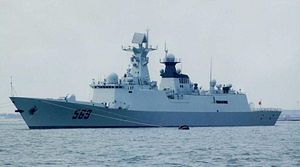On Monday morning, U.S. President Donald J. Trump took to Twitter to voice his frustrations over what he sees as a disproportionate reliance by the international community on the United States to maintain freedom of navigation along critical sea lanes.
The tweets followed more than a week of crisis in the Persian Gulf, where the U.S. accused Iran of sabotaging international oil tankers and shooting down a U.S. surveillance drone.
“China gets 91% of its Oil from the Straight (sic), Japan 62%, & many other countries likewise,” the U.S. president tweeted. “So why are we protecting the shipping lanes for other countries (many years) for zero compensation,” he added.
“All of these countries should be protecting their own ships on what has always been … a dangerous journey. We don’t even need to be there in that the U.S. has just become (by far) the largest producer of Energy anywhere in the world!”
These messages were consistent with longstanding instincts held by the president who made “America First” the cornerstone of his campaign for the presidency and the core strategic theme of the foreign policy component of his inaugural address.
But, for China, Trump’s invitation may represent a welcome opening. While the Obama administration cautiously welcomed a productive Chinese role in the anti-piracy mission off the Horn of Africa, never before has a U.S. president openly suggested a substitutive role for the People’s Liberation Army Navy where freedom of navigation and anti-piracy are concerned.
Indeed, protecting freedom of navigation and the safety of critical sea lanes has for years now been part of China’s messaging surrounding its rapid naval buildup and open embrace of a more expeditionary role for the People’s Liberation Army Navy after years of a near-shores defense mission.
As I discussed in 2017, for instance, prominent Chinese state media outlets cited the PLAN’s involvement in anti-piracy enforcement activities as a justification for China “improving its naval strength.” The Global Times, a nonauthoritative, but state-linked outlet, noted that “it is imperative for Beijing to build a powerful navy that can protect arterial maritime trade routes and defend the country’s growing international interests.”
To some extent, a greater role for the PLAN should be embraced by the United States along critical chokepoints in the global commons.
The Strait of Hormuz is certainly one of these and if a greater PLAN presence were to temper Iranian adventurism (a debatable assumption), then U.S. interests—along with those of several advanced industrial nations that rely on hydrocarbons originating in the Persian Gulf—would be served.
China has used similar framing to justify its first overseas military base in Djibouti. For instance, towards the end of last year, Chinese Ministry of Defense spokesperson Senior Colonel Ren Guoqiang said that the “PLA logistics support base in Djibouti is built to better fulfill the international obligations such as escort missions in the Gulf of Aden and waters off the Somali coast, as well as to provide humanitarian relief.”
There’s no questioning then that Trump’s message will be warmly welcomed in Beijing. Indeed, it may even be taken as an invitation to step up PLAN activities in the western Indian Ocean, the Gulf of Aden, and the Persian Gulf.

































